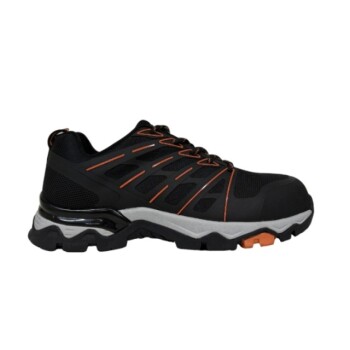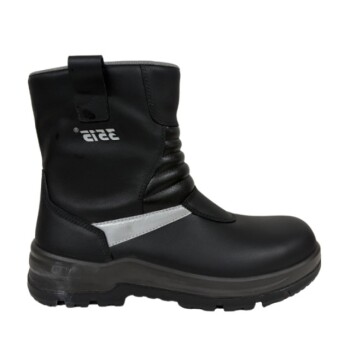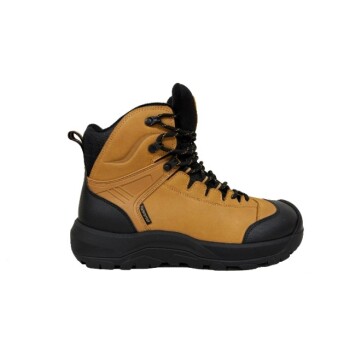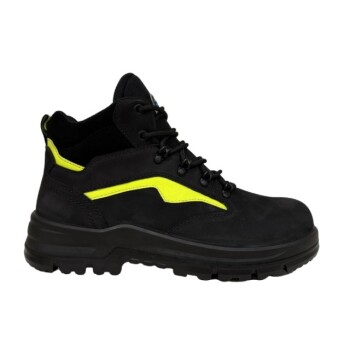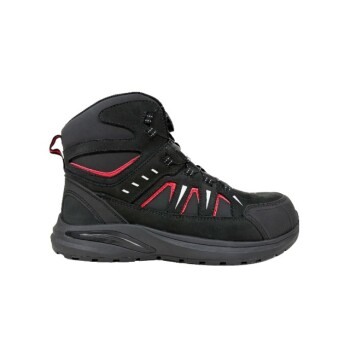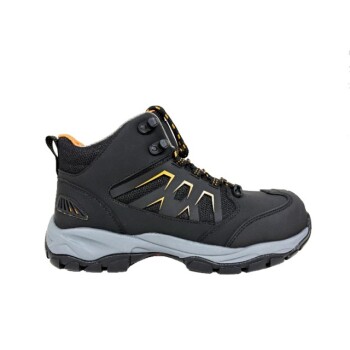To be direct, the primary drawbacks of composite toe caps are their higher cost, a bulkier profile to achieve the same safety rating as steel, and potentially lower resistance to extreme crushing or piercing forces. They are also designed for single-impact protection, meaning they must be replaced after any significant incident.
The decision between composite and other safety toes is not about which is universally "better," but about understanding a crucial trade-off: You are often exchanging the absolute maximum impact resistance of steel for significant gains in comfort, weight, and environmental versatility.
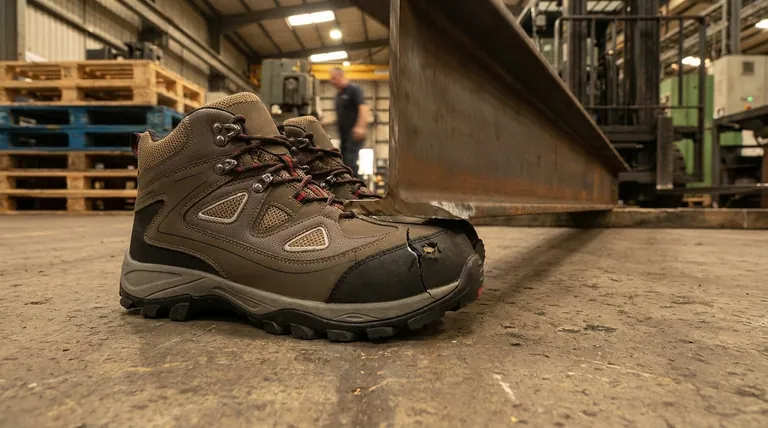
The Core Limitations of Composite Toe Caps
While composite toe caps offer many modern advantages, their limitations are rooted in the physical properties of the materials used, such as carbon fiber, Kevlar, or specialized plastics.
Reduced Protection in Extreme Impacts
While all safety-rated toe caps must meet specific standards (like ASTM F2413 in the US), steel often possesses a higher ultimate failure point. In the event of an exceptionally heavy or sharp impact, steel is more likely to bend or deform, while a composite cap is designed to crack or shatter to absorb the energy.
One-Time Impact Integrity
This is a critical, often misunderstood drawback. After a significant impact, the structural integrity of a composite toe is compromised as the fused fibers delaminate to dissipate the force. The boot is no longer considered safe and must be replaced, even if there is no visible damage.
Increased Bulk
To meet the same safety standards as steel, a composite toe cap must be thicker. This results in a physically larger, more bulbous toe box, which can affect the fit and appearance of the footwear.
Higher Initial Cost
The advanced, lightweight materials and complex manufacturing processes used for composite toes make them a more expensive option upfront compared to traditional steel toe footwear.
Limited Availability
Although becoming more common, composite toe caps are not yet available in every style or size of work boot. This can sometimes limit your choices, especially in highly specialized or less common footwear categories.
Understanding the Trade-offs: Composite vs. Steel
Choosing the right toe cap requires weighing the drawbacks against the distinct advantages they hold over their primary alternative, the steel toe.
The Weight and Comfort Factor
This is composite's most significant advantage. By reducing the boot's weight, sometimes by up to 50%, composite materials drastically reduce foot fatigue over a long workday. This is a major consideration for anyone who spends hours walking or standing.
The Thermal Conductivity Difference
Steel readily conducts temperature, making boots feel frigid in the cold and hot in warm environments. Composite materials are excellent insulators, keeping your feet significantly more comfortable in extreme weather conditions.
The Electrical Hazard Advantage
Because they are completely free of metal, composite toe caps do not conduct electricity. This makes them the default, and often required, choice for electricians and anyone working in environments with a risk of electrical hazards.
The Convenience of Being Metal-Free
For professionals who must frequently pass through metal detectors, such as in airports or secure facilities, composite toes eliminate a daily inconvenience.
Making the Right Choice for Your Work Environment
Your specific job site and daily tasks are the ultimate guide to selecting the appropriate protection.
- If your primary focus is maximum impact resistance in environments with heavy machinery or falling objects (e.g., heavy construction, logging): Steel's ability to withstand extreme forces may be the more conservative and cost-effective choice.
- If your primary focus is working around electricity or metal detectors: Composite is the only suitable option due to its non-metallic, non-conductive properties.
- If your primary focus is all-day comfort and reduced fatigue for jobs requiring constant walking or standing (e.g., logistics, light manufacturing, trade work): The significant weight savings of a composite toe cap is a critical advantage.
- If your primary focus is thermal insulation for outdoor work in very hot or cold climates: Composite toes provide superior comfort by not transferring ambient temperature to your feet.
Ultimately, choosing the right safety toe is about matching the material's specific strengths to the unique demands of your job.
Summary Table:
| Drawback | Key Impact |
|---|---|
| Higher Cost | More expensive upfront than steel toes. |
| Increased Bulk | Thicker toe box to meet safety standards. |
| One-Time Impact | Must be replaced after a significant impact. |
| Extreme Force Resistance | May offer less protection than steel in extreme scenarios. |
| Limited Availability | Fewer style and size options compared to steel. |
Need help selecting the right safety toe for your workforce?
As a large-scale manufacturer, 3515 produces a comprehensive range of safety footwear for distributors, brand owners, and bulk clients. Our production capabilities encompass all types of safety shoes and boots, including both composite and steel toe options.
We can help you navigate these trade-offs to provide your team with the optimal balance of protection, comfort, and value.
Contact our experts today for a consultation on your safety footwear needs!
Visual Guide
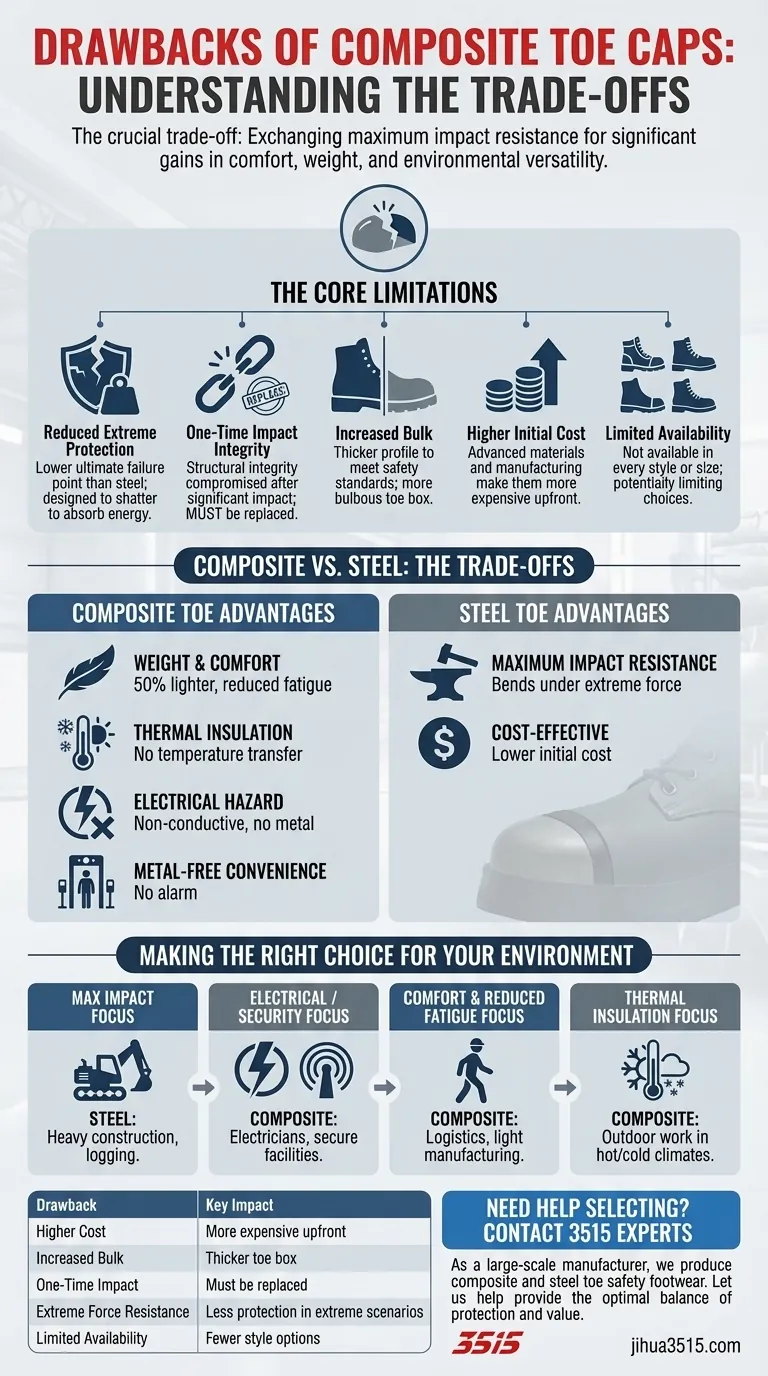
Related Products
- Safety Footwear Wholesale Manufacturer for Custom OEM/ODM Production
- Premium Flame-Retardant Waterproof Safety Boots and Shoes
- Premium KPU Injection Athletic Style Safety Shoes
- Puncture-Resistant Velcro Safety Boots for Wholesale & Custom Manufacturing
- Wholesale Safety Footwear Manufacturer for Bulk & Custom OEM Orders
People Also Ask
- Is it normal to wear shoes in the house? A Guide to Hygiene, Comfort & Culture
- What cultural and environmental considerations are tied to wearing shoes indoors? Balance Hygiene, Tradition, and Foot Health
- Do snake bite boots work? Your Ultimate Guide to Effective Snake Bite Protection
- What do heavy duty boots do? Protect Your Feet in Demanding Work Environments
- Is safety-toe as good as steel toe? Choose the Right Protection for Your Job


